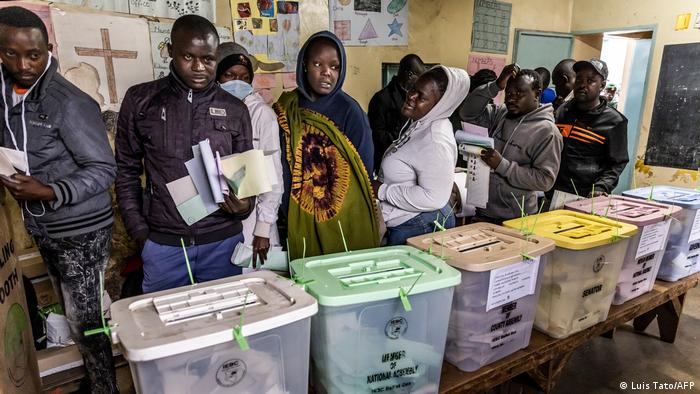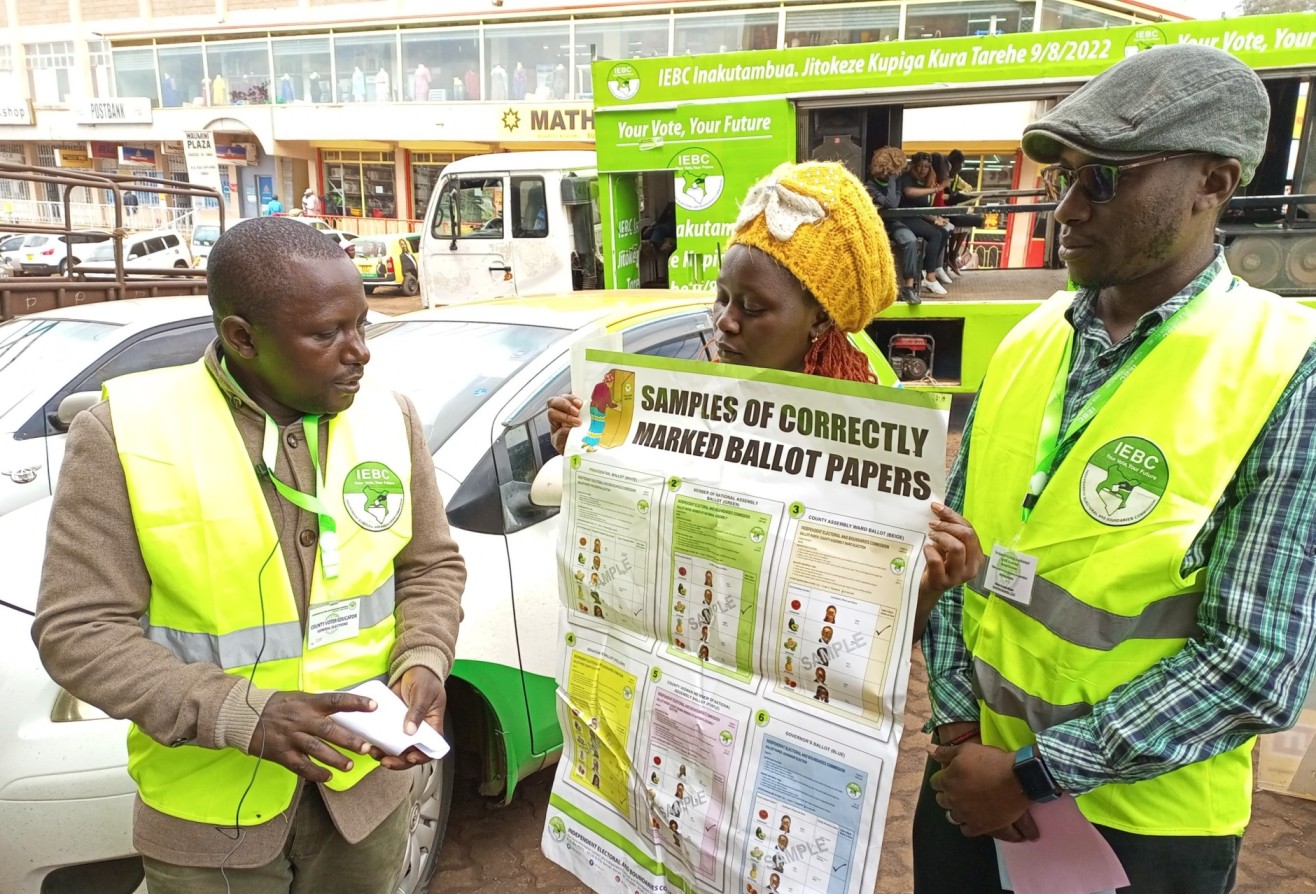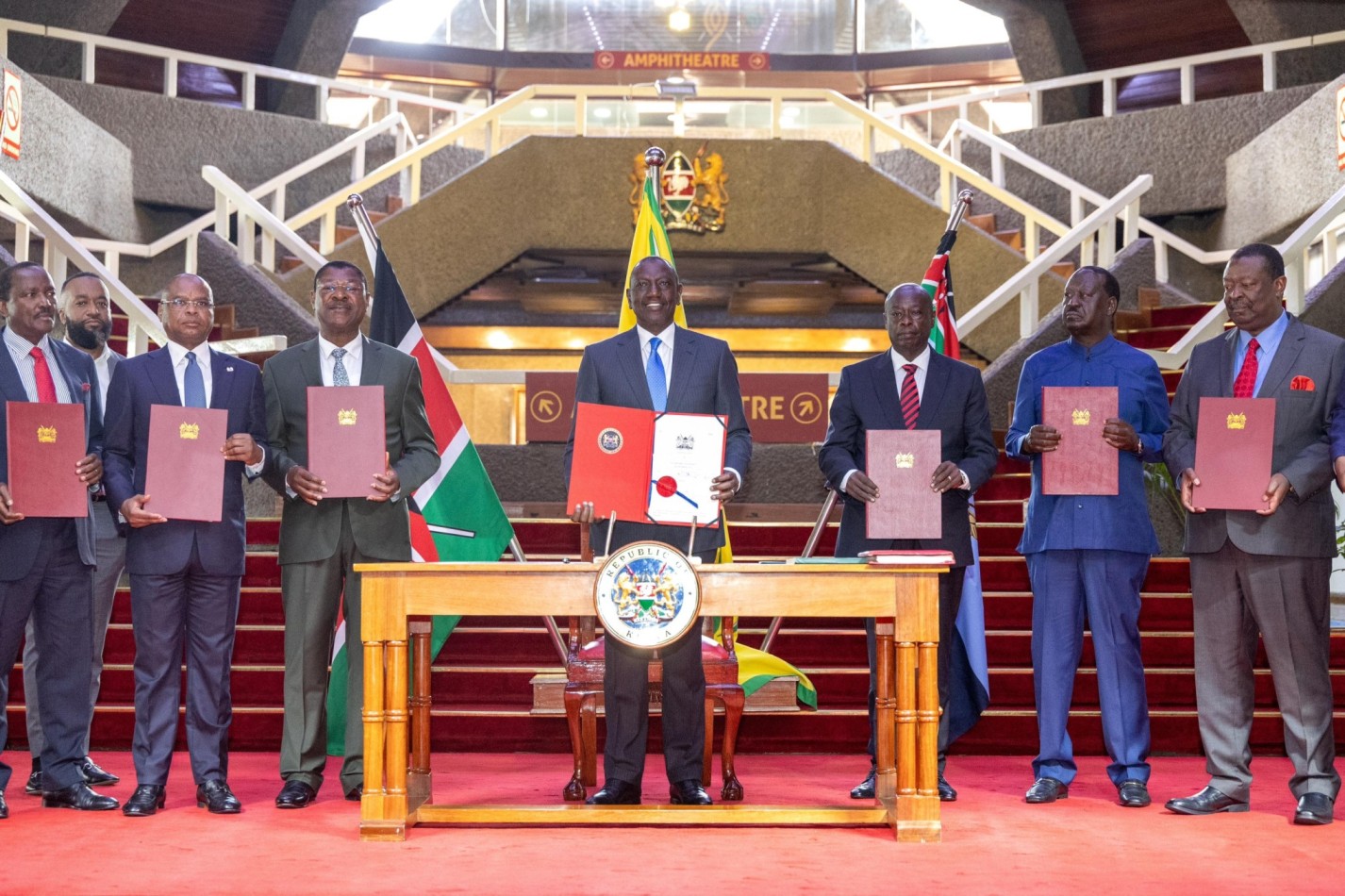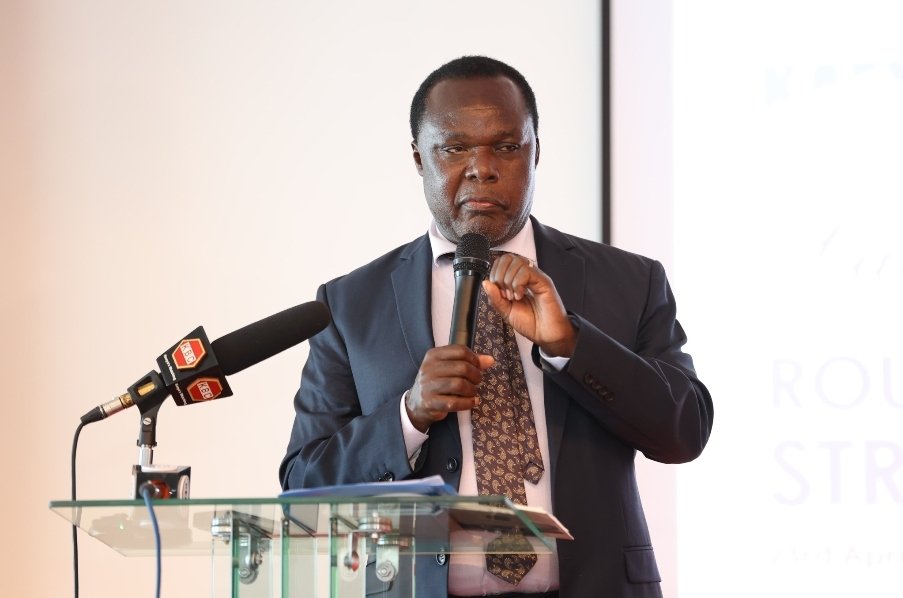MP proposes transition to fully electronic voting, phasing out manual system

To address concerns about the high cost, Ruku proposes implementing the system in phases to ease the financial burden.
Mbeere North MP Geoffrey Ruku has proposed a major change in Kenya's electoral system, including a new bill aimed at making elections fully electronic.
The proposed Elections (Amendment) Bill seeks to eliminate manual voting processes by moving all electoral activities online.
More To Read
- High Court petition challenges IEBC’s role in legal profession elections
- IEBC warns low voter registration, apathy could undermine future elections
- IEBC warns boundary review may spark community, religious and class tensions
- Court to hear petition challenging eligibility of Embu North MP Leo Wa Muthende
- Voters challenge Mbeere North MP Wamuthende’s victory over electoral name discrepancy
- IEBC blames police officers for by-election violence, maintains poll largely successful
It also aims to replace the current mixed system with a completely integrated electronic system for voter registration, candidate nominations, and voting.
"The principal objective of the draft bill is to amend the Elections Act, 2011 to incorporate a fully integrated electronic electoral system in the Kenyan electoral processes," Ruku explained.
During a presentation to the National Assembly Budget Committee, led by Kiharu MP Ndindi Nyoro on Tuesday, Ruku detailed how the bill would manage, support, and administer electronic voting systems.
He proposed abandoning the existing integrated system, which includes biometric voter registration, voter identification, and electronic result transmission.
"The electoral process is hybrid, as there are manual processes such as the casting of physical ballot papers. Therefore, the legislative proposal intends to create a fully integrated electronic system," reads the bill in part.
The MP envisions an electronic system for voter registration, candidate nominations, and voting.
Voting would involve printed, machine-readable, and optically scanned ballots, eliminating the need for manual voting.
 IEBC officials conduct voter education in the build up to the 2022 General Election. (Photo: IEBC)
IEBC officials conduct voter education in the build up to the 2022 General Election. (Photo: IEBC)IEBC officials conduct voter education in the build up to the 2022 General Election. (Photo: IEBC)
Ruku added, "In the current world, where processes are becoming automated as a result of advancements in technology, traditional manual voting systems are becoming too unsustainable."
The debate over adopting electronic versus manual voting systems has been ongoing since the violence following the 2007 general elections.
The Independent Electoral and Boundaries Commission (IEBC) has improved voter identification through biometric systems but faces ongoing challenges with result transmission and tallying.
The Kriegler Commission, established after the 2007 election crisis, recommended biometric technology for voter verification and introduced technological changes in election management.
Consequently, IEBC implemented the Kenya Integrated Electoral Management System (KIEMS) to handle biometric registration, voter identification, and result transmission.
According to the Parliamentary Budget Office, implementing a fully electronic voting system could cost around Sh10.7 billion.
This includes Sh2.6 billion for upgrading the KIEMS system and Sh110 million for technology auditing and certification. Vote scanning machines are estimated to cost Sh7.8 billion, assuming there will be 52,481 polling stations in the 2027 election.
Additionally, 4,350 new KIEMS kits would cost Sh110 million, and another Sh4,620 million would be required for training and the replacement of outdated kits.
 President William Ruto, former Prime Minister Raila Odinga, Deputy President Rigathi Gachagua, former Vice President Kalonzo Musyoka and National Assembly Speaker Moses Wetangula pose with the IEBC Ammendment Act 2024 after Ruto signed it into law at KICC, Nairobi on Tuesday, July 9, 2024. (Photo: PCS)
President William Ruto, former Prime Minister Raila Odinga, Deputy President Rigathi Gachagua, former Vice President Kalonzo Musyoka and National Assembly Speaker Moses Wetangula pose with the IEBC Ammendment Act 2024 after Ruto signed it into law at KICC, Nairobi on Tuesday, July 9, 2024. (Photo: PCS)IEBC conducts voter education in Embu in May 2022. (Photo: IEBC)
MP Ruku contends that the bill's enactment could result in more precise, quick, transparent, and verifiable election results.
"E-voting offers convenience and efficiency by eliminating the need for physical ballot papers, polling stations, and manual vote counting. This technology saves time and reduces human error," he noted.
To address concerns about the high cost, Ruku proposes implementing the system in phases to ease the financial burden.
The lawmaker cited examples from Nigeria, Venezuela, and the United States as models. Nigeria's system sends results to a central portal in real time, reducing rigging possibilities.
In the US, touch screens, ballot scanners, and web servers enhance efficiency and transparency. Venezuela and the Philippines use Smartmatic technology, which offers secure data transmission and advanced audit capabilities.
In contrast, Kenya's 2022 elections, which contracted Smartmatic for the technology, cost taxpayers over Sh5.3 billion, with the entire election costing approximately Sh34.7 billion.
Top Stories Today












































